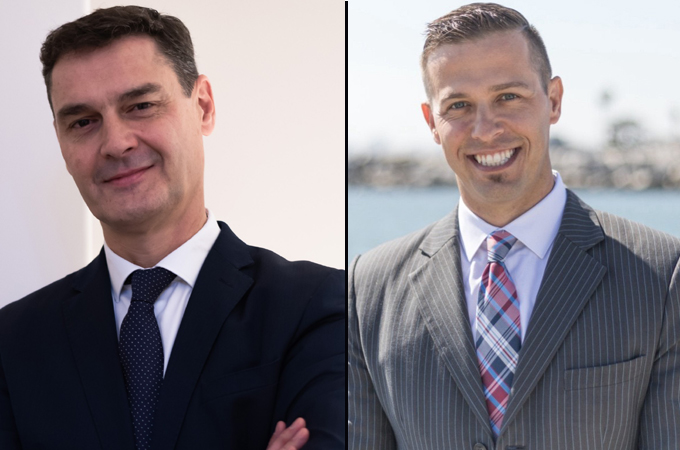Ecolab, a global leader in sustainability and water technologies, represented its growing focus on data center sustainability in the Middle East at the inaugural DCD Connect Mena 2025 held in Dubai.
During the event, Ecolab joined industry leaders to discuss the urgent need for smart water and energy management across digital infrastructure and shared how its technologies are helping data centers meet rising artificial intelligence (AI)-driven demand while addressing sustainability and performance.
Michael Obradovitch, the Global Area Vice President for Data Centers at Ecolab, shared insights on how data centres can balance the growing demands of AI infrastructure with resilient water and energy practices in the Gulf region.
His participation underscores Ecolab's commitment to helping data center operators successfully address the environmental challenges they face in the Middle East.
While the potential of AI is transformative, it requires significant water and energy to operate, which is a key consideration in Mena – one of the world’s most water-scarce, high-temperature regions.
AI infrastructure requires high-powered computing that generates a tremendous amount of heat. To keep systems running reliably, data centers need cooling - and water is a highly efficient way to manage it.
In fact, water transfers heat over 23 times more effectively than air. In part of the complex cooling needs, AI could require as much water as the annual drinking needs of the entire US population by 2030, stated the expert.
But the same innovation driving this demand also holds the key to the solution. With the right technologies and systems, data centres can help improve water efficiency and reduce overall consumption - even as digital infrastructure continues to grow.
This momentum creates a timely opening for Ecolab to support new and existing customers with technology-led water management solutions for data centers. The company expects data centers to be a strategic growth area in the Middle East, it added.
"Ecolab recognizes the vital role data centers play in supporting the region’s digital infrastructure," said Stefan Umiastowski, its Senior Vice President & CEO, India, Middle East & Africa at Ecolab.
"As governments across the Middle East double down on sustainability, we see a unique opportunity to align with their commitment to water conservation while enabling continued digital growth," stated Umiastowski.
"Through stronger collaboration between industry and government, and with the right technologies, we can harness the power of AI to not only meet rising digital demands, but also drive measurable progress in water conservation and resource efficiency," he added.
At DCD Connect Mena, Obradovitch joined the “Conservation Conversations: Shaping a Sustainable Data Center Landscape” panel yesterday (April 16) on the Main Stage.
The session explored how data center operators can prioritise energy and grid efficiency tailored to the region’s unique climate.
"Smart water management in data centers is no longer just about environmental responsibility - it’s a business imperative," said Obradovitch.
"The ability to optimize water consumption while increasing efficiency is fundamental to business resilience - helping operators anticipate and mitigate risk in some of the world’s most challenging climates," he noted.
"With innovation, we’re pushing what’s possible in data centers - helping customers use less water while unlocking capacity, efficiency, and growth, demonstrating that parallel pursuit of sustainability and business objectives is possible," he added.
Ecolab collaborates with major companies, including technology providers like Microsoft, to reduce the water footprint of data centers.
In 2024 alone, the group helped customers across data centres and other industries conserve more than 885 billion litres of water - equivalent to the annual drinking needs of over 781 million people, stated Obradovitch.
.
"By 2030, the company aims to help save 1.1 billion litres per year, enough to provide drinking water to 1 billion people annually," he added.-TradeArabia News Service































